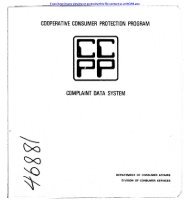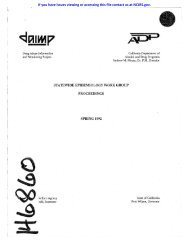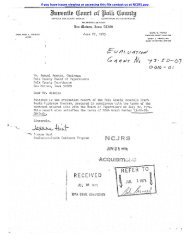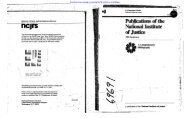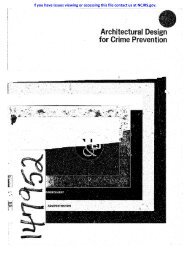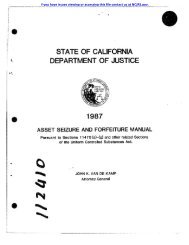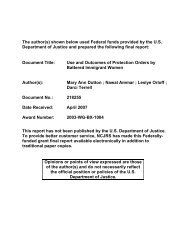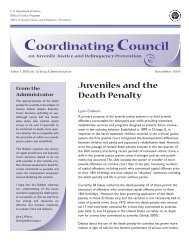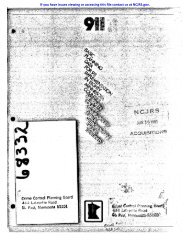0 - National Criminal Justice Reference Service
0 - National Criminal Justice Reference Service
0 - National Criminal Justice Reference Service
You also want an ePaper? Increase the reach of your titles
YUMPU automatically turns print PDFs into web optimized ePapers that Google loves.
a<br />
A third scale dealt with the level of denial perceived by the counselor (coefficient alpha = .79).<br />
This scale included items dealing with an inmate’s unwillingness to believe that he needs help or<br />
admit that he has a drug and/or alcohol problem. In particular, counselors strongly agreed with<br />
statements that the inmate is “in denial”, “unmotivated to recover”, and “manipulative” (Hiller et<br />
al., 2000: 16). Finally, psychological problems (coefficient alpha = .71) constituted the last scale,<br />
based on the counselor’s judgments about an inmate’s mental state. Statements that counselors<br />
strongly agreed with were those that dealt with the inmate being “hostile or aggressive”,<br />
“depressed”, impulsive”, “nervous”, “anxious”, and “easily distracted” (Hiller et al., 2000: 16).<br />
Factor analyses also identified four main content themes addressed by counselors during<br />
sessions with their clients, defined by Hiller et al(2000) as counselor foci. The first of these scales<br />
was seljkonfrontation (coefficient alpha = .87), addressing topics concerning the acceptance of<br />
responsibility, inmate reduction of denial, and inmate improvement of objectivity. The second scale<br />
was defined as lfe skiZls development (coefficient alpha = .89), which includes the improvement of<br />
communication skills, development of coping mechanisms and strategies to avoid recurrence of<br />
drug and/or alcohol use, and the ability to make new friends. Family was the third major<br />
counseling dimension identified (coefficient alpha = .85), which deals with trust, rapport, the<br />
exploration of feelings, specifling short-term goals and objectives, and improving family relations<br />
(Hiller et al., 2000: 17). A fourth dimension, labeledfinancial management, concentrated on<br />
managing finances, job opportunities, occupational issues, and the definition of long-range goals<br />
(coefficient alpha = .89).<br />
58<br />
This document is a research report submitted to the U.S. Department of <strong>Justice</strong>. This report has not<br />
been published by the Department. Opinions or points of view expressed are those of the author(s)<br />
and do not necessarily reflect the official position or policies of the U.S. Department of <strong>Justice</strong>.



